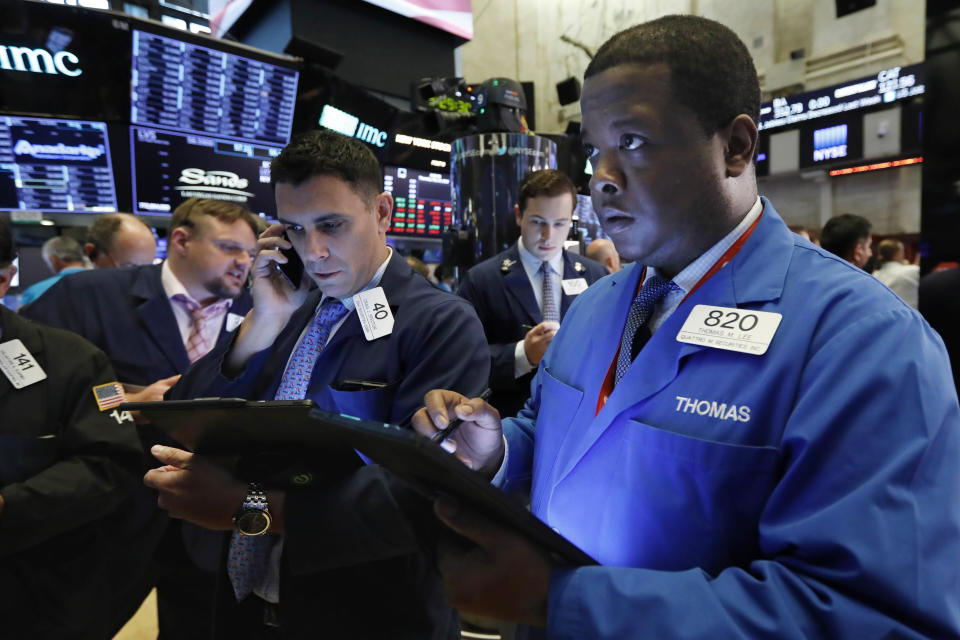What the plunging 10-year Treasury yield says about the economy and stock market
The 10-year Treasury yield (^TNX) continued its downward move Thursday, reaching its lowest point since the end of 2017.
The yield, now at 2.324%, also represents its lowest level so far in 2019.
The move comes amid a rally in bond prices, which move in the opposite direction of bond yields. Investors tend to buy bonds, especially government bonds, when they are worried about the economy. Bonds are safer than stocks.
“The Federal Reserve may not want to hear the message in the falling 10-year yield, but stock market investors would be best suited to take off their blinders,” warned Danielle DiMartino Booth, a former Federal Reserve adviser and CEO of Quill Intelligence. “There are still several economic data points that suggest the economy is strong, such as jobless claims. But we’ve seen enough in the way of negative layoff headlines and slowing manufacturing to indicate claims are the outlier as firms hold on to the skilled employees they struggled to get for longer than they would otherwise.”
The data backs up Booth’s argument. On Thursday, weekly jobless claims fell by 1,000, indicating that fewer workers were laid off. But earlier this week, Ford (F) announced plans to cut 7,000 white collar jobs.
The recent fall in the 10-year yield also surrounds an escalation of trade tensions between the U.S. and China, which has rattled asset classes outside of bonds, like stocks and commodities.

“I would attribute the recent rally in bonds and fall in yields to a flight to safety given uncertainty by the trade war,” said Simeon Hyman, global investment strategist at ProShares in an interview with Yahoo Finance.
Experts worry trade tariffs will ding corporate margins. As Yahoo Finance reported Wednesday, Barclays analysts expect a 10% stock market pullback should tariffs be imposed on all $550 billion worth of imports from China.
That worry is sending investors into bonds, which is pressuring yields. But falling yields tends to be a positive for the stock market.
“[Lower bond yields make] stocks more attractive for the long-term as many stocks now have dividend yields in excess of the 10-year Treasury,” said Chris Cordaro, chief investment officer at RegentAtlantic.
If investors are only going to receive a 2.3% yield in a government bond, they may feel compelled to visit the stock market for a better return.
Falling yields also has implications for the housing market. The yield on the 10-year determines mortgage rates, which are also at their lowest level in roughly one year.
“If rates remain persistently low, we could see increased mortgage refinance activity,” said Eddy Vataru, portfolio manager of Osterweis Total Return Fund. That is, homeowners looking to swap their existing home loan with a new one that has a lower interest rate.
Scott Gamm is a reporter at Yahoo Finance. Follow him on Twitter @ScottGamm.
More from Scott:
Follow Yahoo Finance on Twitter, Facebook, Instagram, Flipboard, LinkedIn, and reddit.

